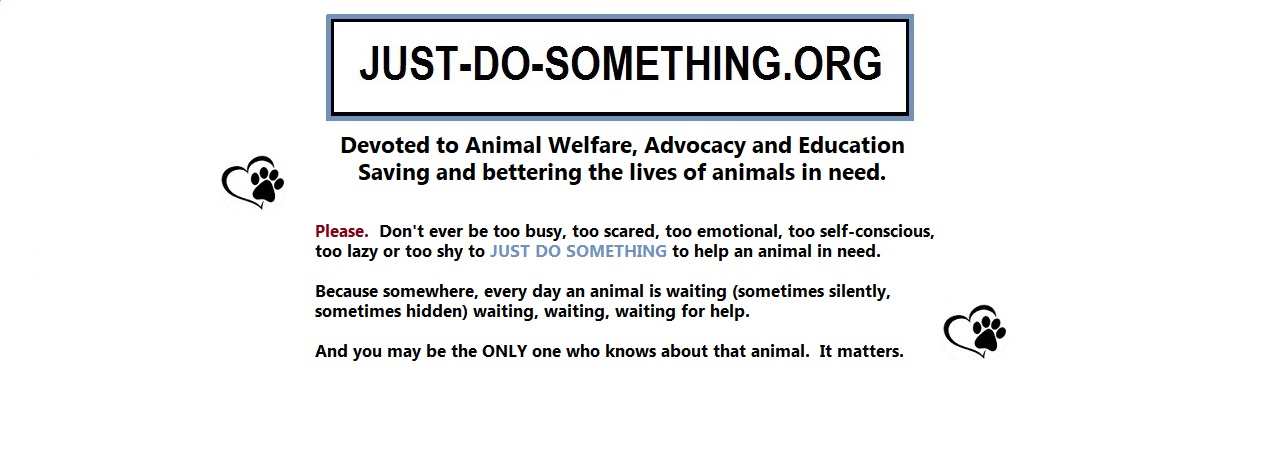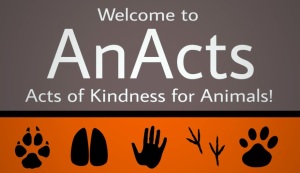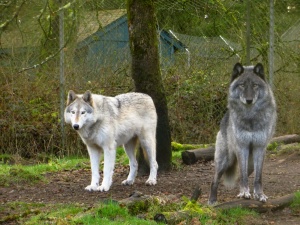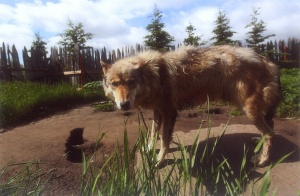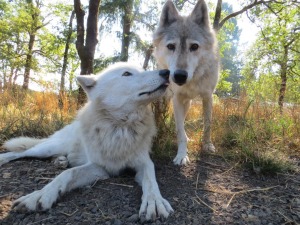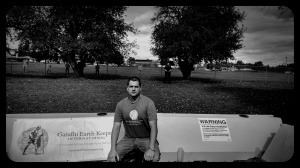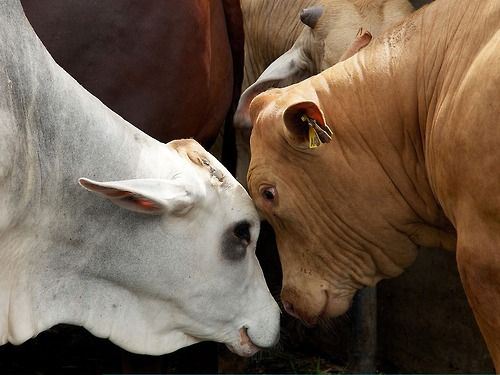Guest Blogger, Mitch Rand (AnActs)
This is a speech that Mitch Rand will be delivering to a group of online activists:
And that is that sometimes it sucks to be an animal activist. It feels like everyone and everything is against you. From the moment you decide that you want to help animals, people begin to throw out insults, saying things like, “you’re weird,” or “you must be one of those tree hugging hippies I heard about!” Other times they take a more “scientific” approach and begin to degrade everything you believe in with a thousand illogical, unsupported “facts” and opinions that they found somewhere on Google, or, better yet, Facebook. It’s amazing how people can be so blind to the real world… It makes you just want to sock them in the face.
Er, forget I said that. As a matter of fact forget I said anything at all about… their intelligence level… And… and don’t sock them in the face… That’s… not a good idea.
I know… It’s hard to keep from lashing out at the opposition with equal anger and hatred, but I’m here tonight to explain that it’s simply the only logical, (and ethical) thing to do.
There will always be people who try to defend the oppression of animals, and they will use any means they can to try and bend you to their whims. From hacking your social media account to harassing and bullying you and others who are trying to make a change,nothing is below the opposition. Nothing, and no one. That should include you.
But many times we try to argue, and get revenge. We see someone causing trouble and want to be the morally upright “police” coming to the rescue. We even have our own judicial system set up in our minds…
We think “Oh this person hurt this animal. Hurt him in the same way and see how he likes it!”
Or, “Anyone who ever dares to harm or injure an animal activist should be arrested, or even killed, on the spot!”
Yeah. We say things like that. And we think they’ll make things better, but in reality, they’re making the situation a whole lot worse.
By stooping down to the level of our moral opponents, we’re only making it more difficult to achieve our goals. By returning fire, that is, throwing back insults, arguments, and threats, we’re giving our opponents a treasure trove of examples that could easily be used to degrade our character, beliefs, and motives. And it doesn’t just reflect upon us as a single person. It affects all animal activists.
“One rotten apple can spoil the bunch,” and one wrong move can push a goal further out of reach, even to the point of impossibility.
All because of a trivial battle fought for the sake of our egos.
And in the end, animals, the very souls we are trying to save, suffer because of us.
Arguing takes the focus off of the more important issues at hand, and in turn wastes valuable time, money, opportunities, and, worst of all, lives.
Yes. Lives.
While we are busy having a verbal duel with someone on the Internet, or at a local gathering, we could instead be doing something constructive, like campaigning for a change, signing a petition, or, better yet, going out and helping an animal ourselves. Just because you don’t act doesn’t mean someone else will, or can. The very definition of activism, according to dictionary.com is “the practice of vigorous action or involvement as a means of achieving political or other goals, sometimes by demonstrations, protests, and so on.” In other words, activism is something you participate in by working for a positive change. Insulting and threatening those who do not comply surely doesn’t fit into that description.
The fact is that by verbally fighting others over the correctness of our viewpoints, we expose their flaws by showing hatred and closed-mindedness- which are the very things that we as animal activists claim to be fighting against! We fall into the trap of contradicting ourselves, and in the process we are helping no one but the very people we are trying to prove wrong- and even they don’t get much out of it!
In fact, the only thing anyone every gained from a angry argument is a bad attitude and a cynical outlook on the world, and everyone in it.
I’ll readily agree that the ignorance of the human race can be extremely frustrating, but just because you are surrounded by shadows doesn’t mean that you can’t shine on your own. Stand for your beliefs, but don’t stand above them. The true meaning of activism is in the idea of promoting your cause before you promote yourself, and compassion, understanding, and a willingness to turn the other cheek. The touchstone of any successful animal activist is the simple ability to be the bigger person.
I am not, however, saying that we shouldn’t fight for what we believe in. If there is no action behind our words and ideas, then there is no meaning to them, either. All I am saying is that we should work for change constructively rather than destructively.
Constructive actions, such as lobbying for a new animal protection law, or donating to your favorite animal charity, are excellent ways to help the animal activism movement and prove your merits as one who works as a voice for the voiceless.
Destructive actions, such as engaging in a comment battle, calling someone ignorant, calling for capital punishment, and so on, only hurt the animal activism movement as a whole, and cast your own personal merits in a negative light.
I am here tonight to ask you to try and always work constructively, and to do all you can to help the cause, rather than hurt it. If you have trouble, as we all do, I want to close with a phrase to help you remember to be the bigger person.
It may be difficult sometimes, but no matter what, Don’t argue! Just act!
– Mitch Rand
Please visit and connect with us on Facebook! Twitter! Google+!
